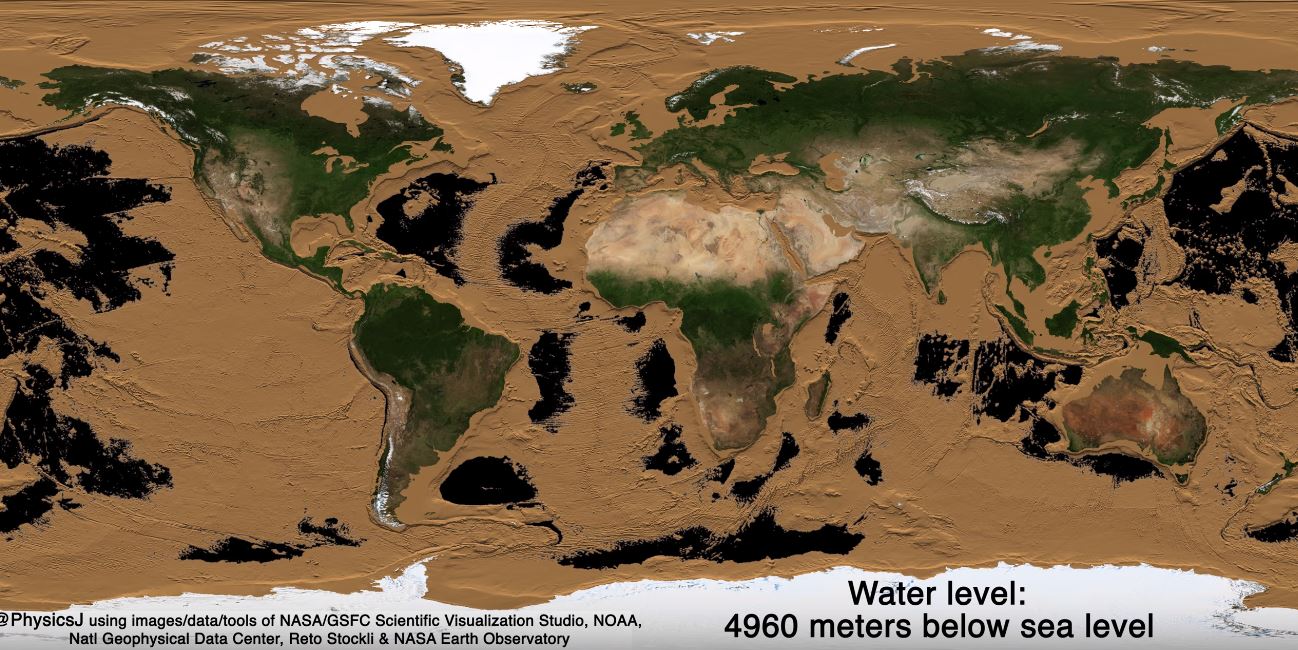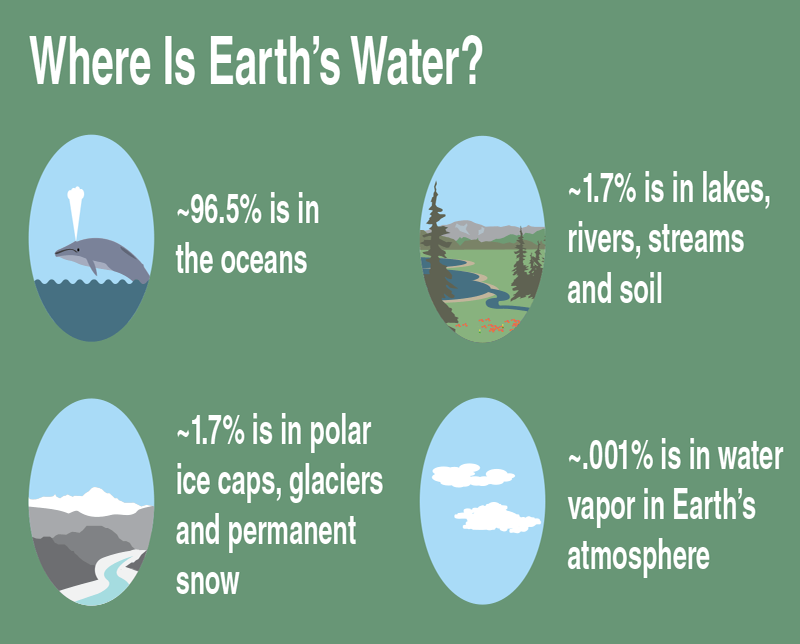96 5 of earth s water lies in the oceans

96.5% of Earth’s water lies in the oceans.

Water, a vital resource for all living beings, covers a significant portion of our planet. It’s astounding to think that a whopping 96.5% of Earth’s water exists in the vast oceans. This statistic highlights the overwhelming influence the oceans have on shaping our planet’s climate, providing habitat for diverse marine life, and driving the water cycle that sustains life as we know it.
Oceans and seas are massive bodies of saltwater that envelop nearly three-quarters of the Earth’s surface. The Pacific Ocean, Atlantic Ocean, Indian Ocean, Southern Ocean, and Arctic Ocean make up the five main oceans that stretch across continents and form a cohesive global water system. The interconnectedness of these oceans allows water to circulate continuously, creating various ocean currents that transport heat and nutrients, influencing weather patterns, and regulating the Earth’s overall climate.

While the oceans contain an unimaginable amount of water, they are not the only source. The remaining 3.5% consists of freshwater, locked within glaciers, ice caps, rivers, lakes, groundwater, and atmospheric moisture. This scarcity of freshwater emphasizes the importance of preserving and properly managing this limited resource.
The oceans play a crucial role in the water cycle, which is the continuous movement of water between the atmosphere, land, and oceans. It starts with the process of evaporation, where the sun’s heat transforms liquid water into water vapor, which then rises into the atmosphere. As the water vapor cools, it condenses and forms clouds, eventually leading to precipitation in the form of rain, snow, or hail. This precipitation replenishes various freshwater sources and ultimately finds its way back to the oceans, continuing the cycle.
The oceans are also responsible for regulating global temperatures. Acting as a vast heat sink, they absorb and distribute heat around the globe, keeping the temperature fluctuations in check. Ocean currents, driven by temperature differences and the Earth’s rotation, work as nature’s conveyor belts, transporting warm water from the equator towards the poles and cold water from the poles back to the equator. This process helps maintain Earth’s climate and influences weather patterns, making the oceans instrumental in our planet’s overall climatic health.
Furthermore, the oceans support an incredible amount of life. From the tiniest microorganisms to the largest mammals, marine ecosystems are incredibly diverse and interconnected. The oceans provide a habitat for countless species, allowing them to thrive. This diversity is not only fascinating but also crucial for maintaining a balanced ecological system. Many organisms within the oceans possess unique adaptations and play significant roles in nutrient cycling, carbon sequestration, and oxygen production, contributing to the overall health of our planet.
In conclusion, the oceans contain a staggering 96.5% of Earth’s water, forming a vital part of our planet’s water system. Understanding the significance of the oceans helps us appreciate their influence on climate, biodiversity, and the water cycle. As stewards of the Earth, it is our responsibility to ensure the preservation and sustainable management of this valuable resource. Let us continue to explore, protect, and appreciate the vast beauty and importance of our oceans.
Source: USGS (United States Geological Survey)
Tags
Share
Related Posts
Quick Links
Legal Stuff

